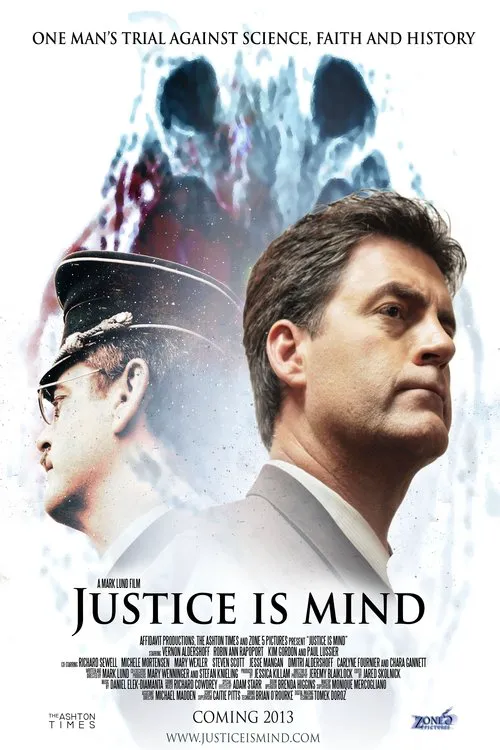Justice Is Mind

Plot
In the year 2030, the world has witnessed a technological breakthrough that has revolutionized the field of law enforcement. With the advent of advanced MRI technology, law enforcement agencies can now directly access an individual's memories, effectively rendering eyewitness testimony and confessions obsolete. This revolutionary technology has been hailed as a major breakthrough, allowing justice to be served with unprecedented accuracy and precision. However, when a defendant named Jack Murphy is accused of committing a high-profile double murder, the court is faced with a case that challenges the very foundation of this new technology. Jack, a respected member of society, maintains that he had nothing to do with the murders, claiming that he has no recollection of the events. The prosecution, led by the determined District Attorney, Rachel Corey, is determined to prove Jack's guilt, armed with the power of the MRI technology. The technology, known as "MindReader," uses a sophisticated form of functional magnetic resonance imaging (fMRI) to scan the brain and record an individual's memories. The process is relatively painless, involving a brief period of discomfort as the scan records the brain activity associated with the memories. The results are then displayed in vivid detail, allowing the court to witness the accused's memories firsthand. As the trial begins, Jack is subjected to the MindReader, and the jury is presented with a harrowing account of the murders. The scan reveals a chilling sequence of events, depicting Jack's presence at the crime scene, his interactions with the victims, and the moments leading up to their deaths. But despite the seemingly damning evidence, Jack remains firm in his assertion of innocence, insisting that the memories are not his own. The defense team, led by Jack's charismatic lawyer, James Park, is faced with a daunting task: to unravel the mystery of the memories and prove that Jack is not responsible for the crimes. As they dig deeper into the case, they uncover a series of inconsistencies and anomalies in the data collected by the MindReader. The film takes a gripping turn when it is revealed that the technology has a limitation: it can only record memories that are stored in the brain, but it cannot distinguish between actual memories and implanted memories. The defense team theorizes that the memories presented in the MindReader were, in fact, implanted in Jack's mind, raising the possibility that the accused is not a murderer but a pawn in a larger game. As the trial reaches its climax, the defense presents its case, questioning the reliability of the MindReader technology and the possibility of tampering with Jack's memories. The prosecution, convinced of Jack's guilt, remains unmoved, insisting that the evidence presented by the MindReader is conclusive. In a stunning twist, it is revealed that the true culprit behind the double murder is none other than Rachel Corey, the prosecuting District Attorney. Her motivation for the crimes is revealed to be a personal vendetta against Jack, whom she had a hidden connection with in the past. Corey's actions are a result of her own troubled past, driven by a desire for revenge and a warped sense of justice. The film concludes with a thought-provoking analysis of the implications of relying on technology to determine guilt or innocence. The case highlights the risks of entrusting our justice system to machines, rather than humans, and the potentially devastating consequences of misusing such technology. As the MindReader technology is called into question, the film leaves the audience with a haunting question: what happens when the truth is not what it seems, and the line between reality and fiction is blurred? In "Justice Is Mind," the lines between truth and deception are constantly blurred, keeping the audience engaged and invested in the mysterious plot. The film raises important questions about the ethics of using technology to determine an individual's guilt or innocence, and the potential consequences of relying on machines rather than human judgment. As a cautionary tale about the dangers of blind trust in technology, "Justice Is Mind" is a gripping and thought-provoking thriller that will linger in the viewer's mind long after the credits roll.
Reviews
Recommendations


